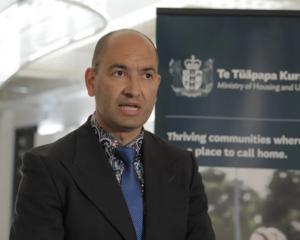The legacy of colonisation has predisposed Maori to having much higher rates of obesity than the total New Zealand population and the Government must do much more to address this inequity, a group of Otago University researchers say.
Citing the 2008/09 Adult Nutrition Survey, they say nearly half of Maori were obese.
The same survey found that 28% of the total population were obese - and nearly 60% of Pasifika.
"Since European settlement and the signing of the Treaty of Waitangi in 1840, Maori have been disadvantaged as a consequence of colonisation and repeated breaches of the Treaty …," the researchers, Drs Reremoana Theodore, Rachael McLean and Lisa Te Morenga, say today in an commentary piece in the Australian and New Zealand Journal of Public Health.
"Loss of land resulted in high levels of poverty and loss of access to traditional food sources for many Maori. The Maori experience, which has been mirrored by many other indigenous groups, has resulted in: wide-scale migration into urban centres; increased consumption of cheap processed foods high in fat and sugar; reduced physical activity levels; and rising rates of obesity and cardiovascular diseases."
They add that Maori tended to be channelled into working-class jobs until the 1970s and were later affected disproportionately, compared with Europeans, by structural economic changes that were accompanied by higher levels of unemployment.
They urge a focus on the "historically driven social determinants of obesity" to avoid blaming Maori - and their choices - for their own ill health.
The researchers lament the demise of Health Eating-Health Action and its associated anti-obesity programmes. They also support the current Government's Whanau Ora and Healthy Families NZ schemes as a "starting point for addressing obesity", but say much more must be done and that the Government has a treaty responsibility to work in partnership with Maori to and to ensure Maori health equity.
"A key issue, however, with Healthy Families NZ is that it focuses on educating people … to make better choices. Evidence increasingly suggests that interventions that rely on individual agency may actually increase socioeconomic inequalities in obesity."
The policies they propose are in line with those of public health researchers who call for sugar and fat taxes and regulations to control the marketing of unhealthy food and drink to children - ideas repeatedly rejected by the Government.
The Health Ministry, in response to the article, told Radio New Zealand that the creation of the Healthy Families NZ scheme in 10 locations was intended to encourage families to choose healthy foods, be physically active, maintain a healthy weight, not to smoke and to drink only moderate amounts of alcohol. The scheme was part of the Government's approach to promoting good health.
By Martin Johnston of the New Zealand Herald












